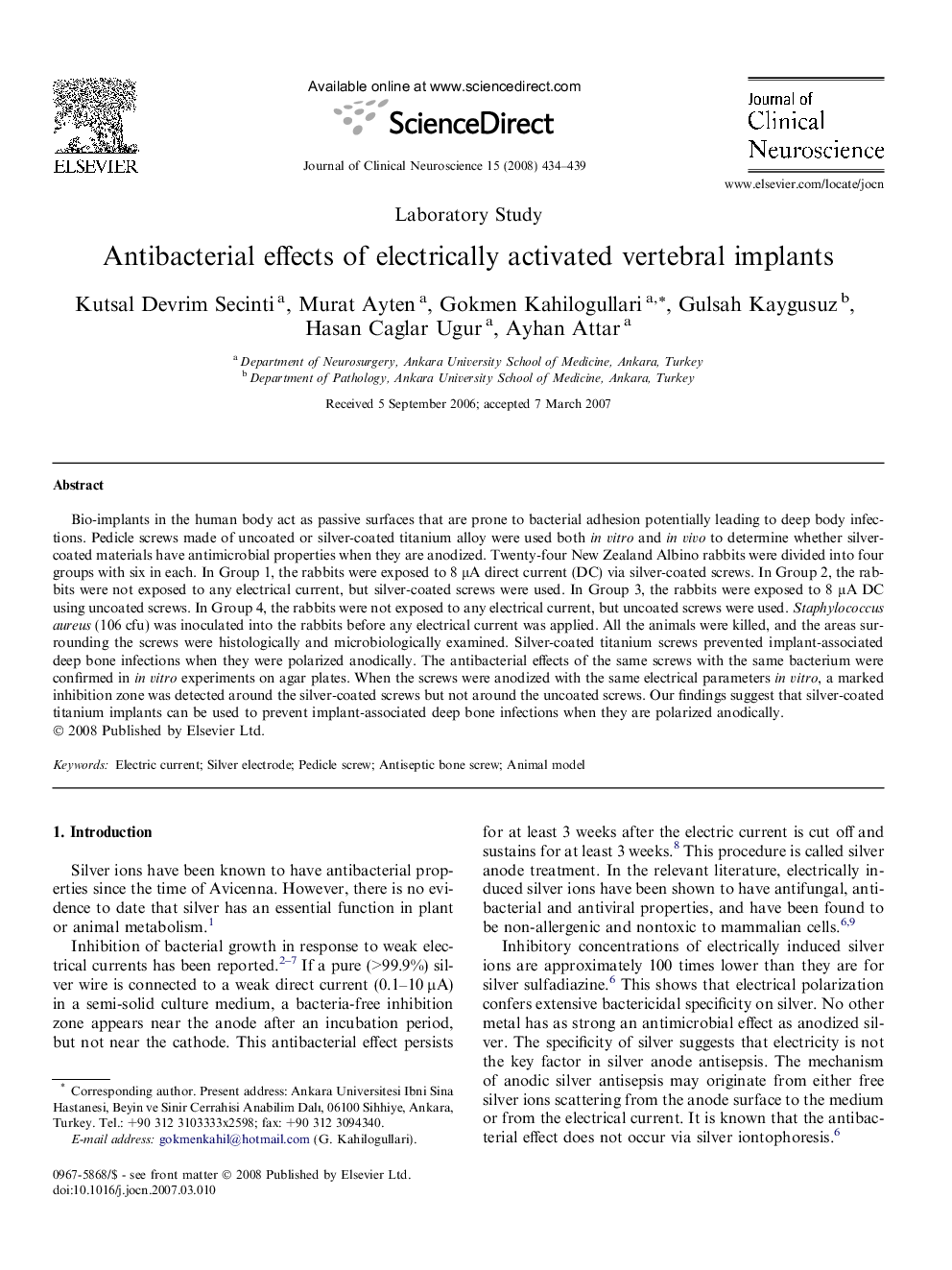| Article ID | Journal | Published Year | Pages | File Type |
|---|---|---|---|---|
| 3062521 | Journal of Clinical Neuroscience | 2008 | 6 Pages |
Bio-implants in the human body act as passive surfaces that are prone to bacterial adhesion potentially leading to deep body infections. Pedicle screws made of uncoated or silver-coated titanium alloy were used both in vitro and in vivo to determine whether silver-coated materials have antimicrobial properties when they are anodized. Twenty-four New Zealand Albino rabbits were divided into four groups with six in each. In Group 1, the rabbits were exposed to 8 μA direct current (DC) via silver-coated screws. In Group 2, the rabbits were not exposed to any electrical current, but silver-coated screws were used. In Group 3, the rabbits were exposed to 8 μA DC using uncoated screws. In Group 4, the rabbits were not exposed to any electrical current, but uncoated screws were used. Staphylococcus aureus (106 cfu) was inoculated into the rabbits before any electrical current was applied. All the animals were killed, and the areas surrounding the screws were histologically and microbiologically examined. Silver-coated titanium screws prevented implant-associated deep bone infections when they were polarized anodically. The antibacterial effects of the same screws with the same bacterium were confirmed in in vitro experiments on agar plates. When the screws were anodized with the same electrical parameters in vitro, a marked inhibition zone was detected around the silver-coated screws but not around the uncoated screws. Our findings suggest that silver-coated titanium implants can be used to prevent implant-associated deep bone infections when they are polarized anodically.
